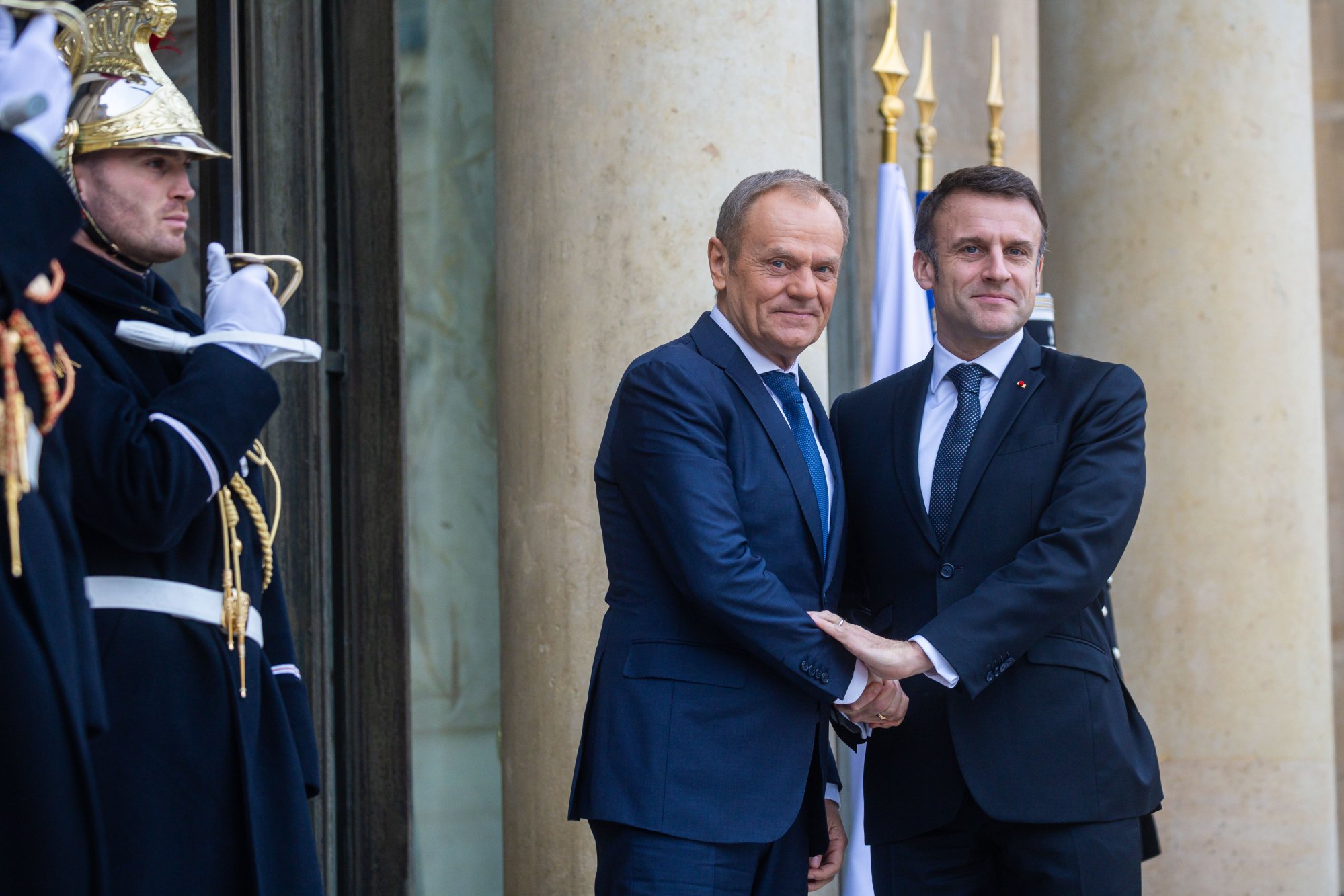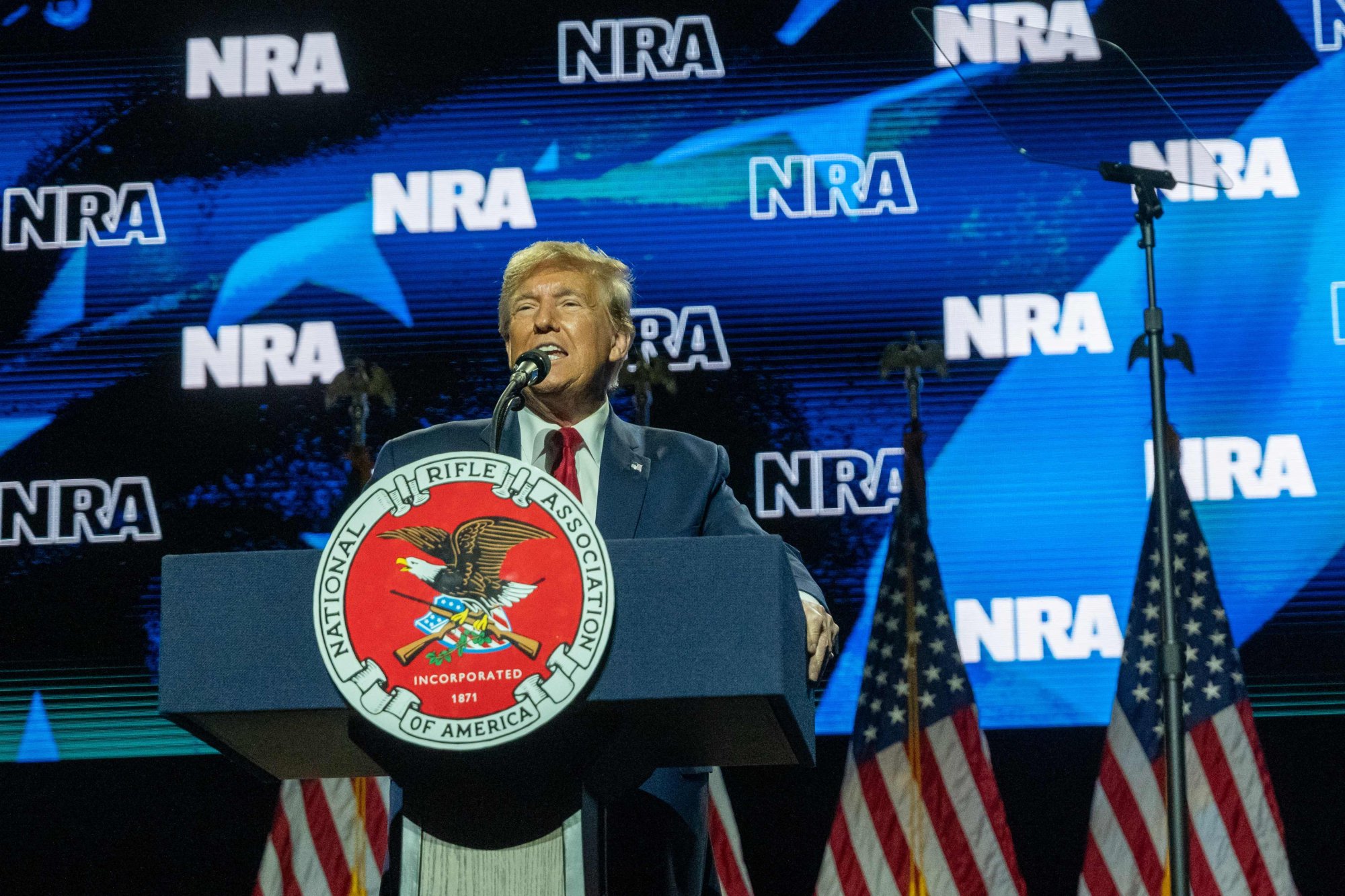
French President Emmanuel Macron and Polish Prime Minister Donald Tusk on Monday discussed ramping up security cooperation in Europe, as fears grow that former US president Donald Trump’s possible return to the White House might threaten Western solidarity against Russia’s invasion of Ukraine.
Former EU chief Tusk referenced Alexandre Dumas’ classic book, The Three Musketeers, as he said Poland was ready to stand shoulder to shoulder with France and stressed that the philosophy at the heart of relations between the European Union and Nato was based on the principle of “one for all, all for one”.
“Together with France we are ready to fight for this security” of “all of Europe,” he said.

Tusk’s comments were a thinly veiled jab at Trump, who sent a chill through the United States’ European allies at the weekend when he said he would “encourage” Russia to attack any Nato country that does not meet financial obligations.
Tusk also said he was keen to revive the so-called “Weimar Triangle” format that was initially created in 1991 to enable concerted European action and also includes Germany.
Tusk returned to the post of Poland’s prime minister in December, marking a break from years of right-wing rule and vowing to restore strong EU ties.
He was expected to hold talk with German Chancellor Olaf Scholz in Berlin later in the day.
France, Germany and Poland are seeking to strengthen cooperation as Moscow’s invasion of Ukraine enters a third year and Russian President Vladimir Putin grows more confident.
Finland’s Stubb elected as president of Nato’s newest member
Finland’s Stubb elected as president of Nato’s newest member
Macron praised Tusk and his government as “trusted, pro-European partners” who are “clear on European security”.
He also reiterated calls to strengthen the European defence industry.
“This is what will also make it possible to make Europe a security and defence power complementary to Nato, the European pillar of the Atlantic alliance,” he said.
In January, the French president called on European countries to get ready to back Ukraine in case Washington decides to pull the plug on aid.
Separately, top diplomats of France, Germany and Poland were set on Monday to launch a joint initiative to fight Russian disinformation attacks.

Tusk said he had the feeling that the positions of France and Poland were very similar in these difficult times, including with regard to geopolitics and security issues. “Europe must become a secure continent, and that means that the European Union, France and Poland must become strong states ready to defend and support their own borders and territory.”
Tusk said that it was “absolutely necessary” to create what he called “a MEGA plan for a secure Europe, for European security.” Tusk translated the acronym MEGA as “Make Europe Great Again” – echoing the famous campaign slogan “Make America Great Again” used by Trump.
“I would like us to send a joint signal today to Europe and to the entire West that we are ready to show full solidarity in all situations, even the most difficult ones,” Tusk said.
Trump’s call for Russia to invade Nato members ‘unhinged’, White House says
Trump’s call for Russia to invade Nato members ‘unhinged’, White House says
French Foreign Minister Stephane Sejourne was to host German counterpart Annalena Baerbock and Radoslaw Sikorski of Poland at the Chateau de La Celle-Saint-Cloud just outside Paris.
Sejourne said at the weekend that France, Germany and Poland would unveil a new cooperation agreement to combat foreign disinformation operations, particularly those originating in Russia.
The ministers were expected to also report on Moscow’s new information attacks against the three countries.
“Our three countries have been victims of the same destabilisation strategy,” Sejourne said in an interview with French regional daily Ouest-France published on Saturday.
Sejourne said that the trio would reveal “the attacks that have been committed,” adding such disinformation moves were designed to divide public opinion.
Kremlin critics say Russia has for years used troll factories and fake news websites to spread disinformation in the West.
After Putin sent troops to Ukraine in February 2022, Moscow ramped up efforts to promote a pro-Kremlin narrative.
Additional reporting by dpa
EMEA Tribune is not involved in this news article, it is taken from our partners and or from the News Agencies. Copyright and Credit go to the News Agencies, email [email protected] Follow our WhatsApp verified Channel









